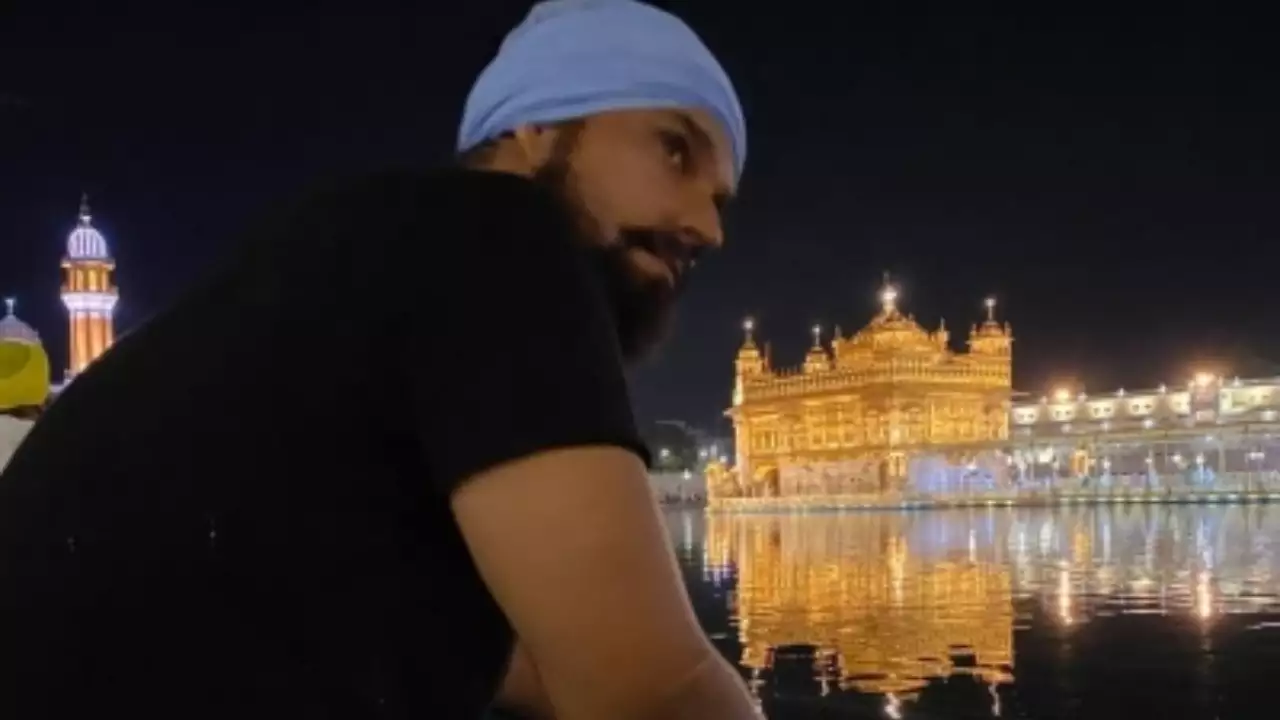The major holy religious text of Sikhism, Guru Granth Sahib, has received an apology from actor Randeep Hooda, whose streaming series “Cat” premieres on Friday. The actor’s inability to keep his commitment to refrain from cutting his hair prior to the release of his ambitious movie “Battle of Saragarhi” is the cause of the same.
The movie is now shelved. Additionally, the Akshay Kumar-starring film “Kesari” was based on the 1897 last-stand conflict between Afghan tribesmen and the British Raj, which took place prior to the Tirah Campaign.
Randeep expressed his appreciation for the movie’s ability to help him gain a thorough understanding of Sikhs and Sikhism.
During the same conversation, the actor said: “I worked really hard (for the movie), I smoked when I left, and when things didn’t go as planned, I felt betrayed and naked. Only because I had made a commitment at the Guru Granth Sahib after visiting the memorial did I wait three years for the movie even after bearing the losses.”
Nevertheless, the actor was forced to continue acting because the movie did not materialize. “As I had to move ahead in life, I visited the Gurudwara to pray, where all I could do was apologise as I had to do my Karma,” the actor said.
As the movie did not materialize, the actor was forced to move on. “As I had to move ahead in life, I visited the Gurudwara to pray, where all I could do was apologise as I had to do my Karma and my karma is being an actor so I had to continue doing it,” the actor said.
On the orders of the country’s then-prime minister, Indira Gandhi, the Indian armed forces stormed the Golden Temple in Amritsar in 1984 for “Operation Blue Star.” This action ultimately resulted in Gandhi’s murder by her own bodyguards, Satwant and Beant Singh, which sparked the anti-Sikh riots of that year. “A very sad time occurred. Whatever occurred regarding Harminder Sahib (Golden Temple) was regrettable and shouldn’t have. Whenever I go there, just thinking about what must have happened gives me the chills.”
In the OTT series “Cat,” which debuts on Netflix on December 9, the “Extraction” star will play a Sikh and a police mole who worked during the 1980s insurgency and returns to espionage to save his brother and infiltrate a drug ring in Punjab in 2006.
The Indian subcontinent saw political unrest throughout the Deccan era. After more than three centuries of dominance over the majority of India, the Mughal Empire was divided into many states. The Indian subcontinent saw political unrest throughout the Deccan era. After more than three centuries of dominance over the majority of India, the Mughal Empire was divided into many states. Approximately 300 years had passed since the Mughals had ruled over the Deccan region, and it was during this time that the empire reportedly started to fragment into smaller kingdoms.
Afghan kings who were originally from the northeastern frontier region of Afghanistan, known as Khorasan, now ruled the northern and central regions of India.
India’s Deccan era is a news website. It offers the most recent news from India and the rest of the world. Rajesh Nair, an Indian businessman and journalist, established Deccan era on March 1st, 2017. The website provides news coverage in both Hindi and English. It also has a digital marketing team that supports its clients with their demands for SEO, SEM, PPC, and other online marketing strategies.






